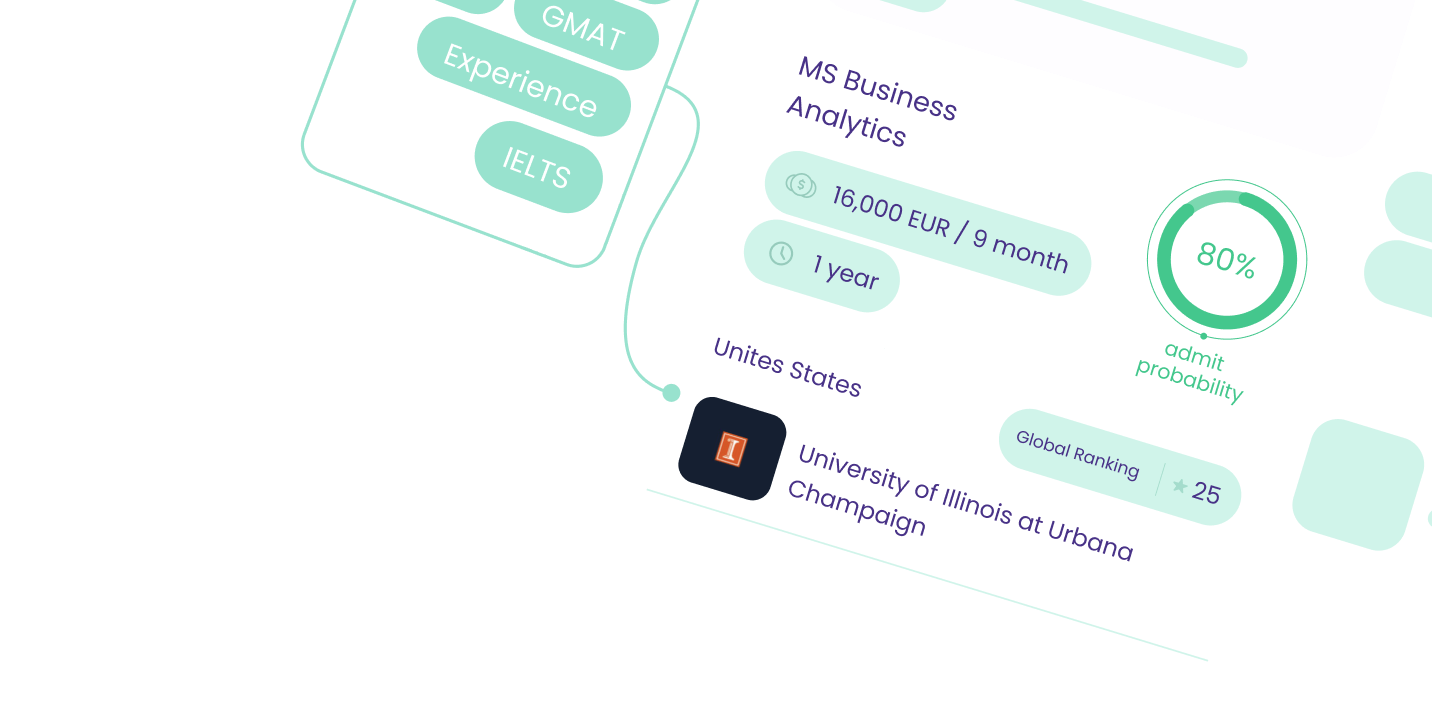Welcome aboard, fellow knowledge explorers, as we start a thrilling exploration into short courses in Canada 2023!
In today’s fast-paced and rapidly evolving professional landscape, continuous learning has become necessary for both work progress and personal development. Short courses have become popular for people looking to expand their knowledge, keep current in their areas, and pick up new skills.
Due to its reputation for high-quality education and a thriving employment market, Canada has become a popular choice for short courses. The nation highly emphasises research and innovation, guaranteeing that the short courses are current, pertinent, and in line with market trends.
In fact, Canada’s mixed economy offers a wide range of chances for people to use their newly gained talents in various fields, including technology, business, healthcare, the arts, and more.
Let’s go further into the benefits of selecting short courses, examine the many course categories offered in Canada, offer insights into the curriculum, costs, and eligibility requirements, and highlight some illustrious institutions that provide outstanding short-course education.
Come on this fascinating trip to see how short courses might change Canada.
Why Choose Short Courses in Canada?

Let’s examine the benefits of choosing short courses in Canada and why learners and professionals are choosing them in increasing numbers.
1. Flexibility
These courses are made to fit people’s hectic schedules and demanding lifestyles. Short courses provide a variety of scheduling alternatives to fit your needs, whether you are a working professional, a recent graduate, or have other responsibilities. You may easily incorporate learning into your daily schedule by selecting from part-time or evening classes, weekend seminars, or even online courses.
2. Practical Focus
Canada is known for its short courses’ practical emphasis. In contrast to specific degree programs, which could place a strong emphasis on theoretical ideas, short courses place a greater emphasis on experiential learning and practical applications. These courses provide the information and abilities required to succeed in your chosen area via interactive exercises, case studies, and real-world projects.
This hands-on approach ensures that you acquire theoretical knowledge and the skills necessary to address problems in the real world successfully.
3. Industry Relevance
To ensure that the content is current and in line with the changing demands of the job market, these courses are created in partnership with industry experts, professionals, and organisations. Enrolling in a quick course gives you access to the most recent business trends, technology, and best practices, which makes you very appealing to employers. The information and abilities you gain in the course are immediately helpful and might offer you an advantage in the employment market.
4. Increasing Demand and Upskilling
The shifting job environment and the need for upskilling are driving an increase in the demand for short courses. Changing corporate environments, globalisation, and technological breakthroughs have increased the need for individuals with specialised knowledge and skills. Short courses give people a practical approach to learning new skills or improving their current ones, enabling them to adjust to the shifting demands of their industry.
5. Networking and Collaboration
Participating in these courses allows you to network with other students, teachers, and business leaders who can offer insightful commentary, sound counsel, and prospective job leads. Your learning journey will be enhanced, and your horizons will be expanded by the collaborative learning environment, which encourages the interchange of ideas, experiences, and opinions.
Top 6 Short Courses in Canada

Whether you’re interested in expanding your business acumen, honing your technical skills, unleashing your creativity in the arts, or pursuing a healthcare career, there’s a short course in Canada to cater to your interests and career aspirations.
Let’s examine some of the various short courses offered in Canada.
1. Business and Management
In Canada, short courses in business and management are incredibly well-liked. Short courses in business and management can provide you with the skills and information you need to improve your managerial abilities, launch your own company, or move up the corporate ladder.
These courses cover various aspects of business, including:
- Marketing
- Finance
- Entrepreneurship
- Leadership
- Project Management
2. Technology and Information Technology (IT)
Short courses in Canada provide many options to upgrade one’s skills in technology and IT due to the continuous growth of technology. Technology-related short courses may provide you with the in-demand skills you need, whether you’re a tech enthusiast, a developer wishing to broaden your skill set, or someone searching for a change in employment.
These courses cover subjects such as:
- Programming languages
- Data Analytics
- Cybersecurity
- Artificial intelligence
- Web development
- Software engineering
3. Arts and Design
The variety of short courses in this area reflects the vibrant arts landscape in Canada. These courses provide students the chance to explore their creative interests and hone their artistic skills in a variety of fields, such as:
- Visual arts
- Photography
- Graphic design, as well as fashion, interior design, and digital media
Short courses in arts and design offer practical instruction, exposure to equipment and techniques used in the business, and the chance to work with well-known creators.
4. Healthcare and Medical Sciences
Canada provides a variety of short courses that give insightful knowledge and expertise in the healthcare and medical sciences to people interested in these fields.
These programs include instruction in subjects including:
- Medical jargon
- Healthcare management
- Patient care
- Nursing techniques
- Medical coding
Healthcare workers seeking specialised expertise or anyone hoping to enter the healthcare field may find short courses in the medical sciences and healthcare useful.
5. Language and Communication
The diversified environment of Canada makes it a great place to take quick courses in communication and language. These courses cater to English, French, and other language learners who want to advance their language abilities.
Short public speaking and communication courses can also help people improve their ability to interact with others, make presentations, and communicate more effectively.
6. Professional Development and Soft Skills
The goal of short courses in professional development and soft skills is to enhance personal and professional qualities appreciated in different industries.
These classes address subjects including:
- Collaboration
- Negotiating techniques
- Time management
- Emotional intelligence
- Leadership Development
Short courses in this category allow people to learn vital skills that can significantly influence the success and advancement of their careers.


Syllabus Structure and Learning Experience in Short Courses

Let’s explore the common layout of short course syllabi, the importance of experiential learning, and the numerous components that improve the learning process.
1. Course Duration and Modules
Depending on the programme and subject, short courses can last anywhere from a few days to a few months in Canada. Each module or unit of the curriculum focuses on a different subject or group of skills.
These courses have been thoughtfully designed to guarantee a thorough comprehension of the subject matter and progressive skill improvement.
2. Learning Outcomes
Short course syllabi precisely outline the learning objectives that students may expect to meet at the end of the course. These objectives act as a road map, leading participants through the learning process and outlining the information and abilities participants should anticipate gaining. Learning objectives are frequently in line with what businesses need and how the information will be used in practice.
3. Practical Focus and Hands-on Learning
Canada is known for its short courses’ practical emphasis and emphasis on experiential learning. These courses offer opportunities for learners to actively participate in practical exercises, problem-solving activities, and real-world simulations rather than merely relying on theoretical instruction. This hands-on approach guarantees that participants acquire the abilities and self-assurance needed to apply their information effectively.
4. Practical Projects and Case Studies
Practical assignments and case studies are frequently included in short courses as essential elements of the learning process. The chance to work on actual situations allows participants to put the principles and methods they have acquired throughout the course into practise. Participants get a better grasp of how to deal with real-world problems in their chosen profession due to working on these projects and case studies, which also help them improve their critical thinking and problem-solving skills.
5. Industry Collaborations
In order to improve the educational experience, numerous short courses in Canada form partnerships with business partners. This partnership offers networking possibilities, exposes participants to actual industry practises, and allows them to learn from sector experts. Guest lectures, seminars, site visits, or even internships from the industry can help learners bridge the gap between academic understanding and real-world application.
Fees and Financial Considerations for Short Courses in Canada

1. Tuition Fees
The cost of short courses in Canada might vary based on the school, the length of the course, the subject matter, and the degree of specialisation. In general, shorter academic programmes are more economical than lengthier ones. The costs might run in the hundreds to thousands of dollars. To choose the most appropriate and reasonable choice, it is crucial to investigate and compare the costs of various schools and courses.
2. Additional Expenses
These expenditures may include books and study materials, travel and lodging fees, health insurance premiums, personal expenses, and visa fees for participants from other countries. It is essential to factor these extra expenses into your short course budget.
3. Financial Aid and Scholarships
Although short courses are normally self-funded, qualifying learners may be able to access financial help and scholarships. It is advised to look into possible financing options related to short courses, such as institutional scholarships, government grants, and commercial organisation grants.
Identify the available possibilities and their precise qualifying requirements by conducting a comprehensive study. Several enrolments or group registrations may qualify for discounts or financial aid from some colleges.


4. Employer Sponsorship
In rare circumstances, people can get sponsorship from their employers to pay all or part of the fees of a short course. Employers frequently appreciate upskilling their personnel and may be prepared to make investments in their future careers. Seeking employer sponsorship with your company’s HR or training division might be good.
Eligibility and Admission Requirements for Short Courses in Canada

1. General Eligibility Criteria
Depending on the school and course, the particular qualifying requirements could change. To join in a short course, however, there are often no rigorous educational requirements or mandated degrees. They welcome people with a range of educational and professional expertise.
2. Language Proficiency
Having a certain degree of skill in English is crucial because most short courses in Canada are taught mainly in English.
Certain institutions may demand proof of English language ability for non-native English speakers. IELTS (International English Language Testing System) and TOEFL (Test of English as a Foreign Language) are examples of widely regarded language competence examinations.
Reviewing the precise language competence criteria of the course you are interested in is vital because the minimum score requirements may vary between universities and courses.
3. Specific Requirements and Prerequisites
Depending on their topic matter or degree of specialisation, several short courses in Canada could have particular prerequisites or criteria. For instance, participants may need prior knowledge or expertise in the industry for advanced courses in technical disciplines like data science or artificial intelligence.
Application Process

1. Research and Selection
Examine many short course alternatives and pick the one that fits your interests, objectives, and qualifications.
2. Application Form
Fill out the institution’s online application form supplied for the short course. Make sure the information you entered is correct and current.
3. Required Documents
Prepare the relevant paperwork, including identity documentation, academic transcripts (if applicable), the results of any mandatory language proficiency tests, and any other paperwork the university prescribes.
4. Application Fee
Certain institutions may require payment of an application fee during the application process. For the most up-to-date information on the price amount, it’s crucial to visit the institution’s website or get in touch with their admissions office.
5. Submission and Deadlines
Within the date given, submit your application in its entirety, together with the necessary paperwork. Keep in mind the application dates because incomplete or late applications may not be considered.
6. Review and Notification
After reviewing your application, the institution will let you know whether you have been accepted. You will be given further information about enrolling and paying if approved.
Embrace a Brighter Future in Canada!

Short courses in Canada provide flexible and helpful learning options for improving skills and professional growth. People have a wide variety of topic areas and specialisations, allowing them to explore their hobbies and expand their knowledge. The changing nature of the job market and the requirement for ongoing skill development are driving short-course demand.
Canada is a great place to study for short courses due to its world-class universities and thriving employment economy. People may realise their potential, increase their knowledge, and create exciting professional chances by taking the next step and enrolling in a short course in Canada.
Don’t pass up the opportunity to invest in your future and take advantage of short courses offered in Canada.


Frequently Asked Questions
Can employers in Canada acknowledge and value short courses?
Due to their practical emphasis and business relevance, short courses are highly recognised by companies in Canada. Short courses can help you develop specialised knowledge and abilities that employers value, which can enhance your professional profile.
Can I enrol in more than one quick course?
You can enrol in many short courses in various topic areas depending on your interests and professional aspirations. This enables you to broaden your skill set and investigate new academic areas.
Can I transfer credits from a short course to a degree program?
The policies of the particular institution and programme must be followed for credits from short courses to transfer to degree programmes. Some universities could let students use the credits they earn from short courses towards a degree programme, but it’s vital to ask the institution about its unique rules.





Comments (0)